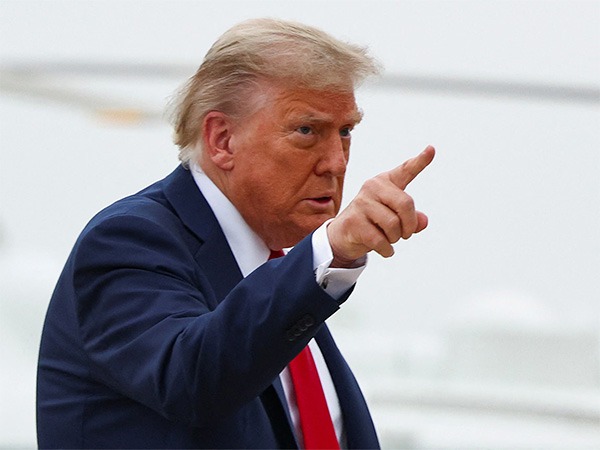Inflation 'makes it difficult' for President Trump's tax policy
Jul 17, 2025

Washington [US], July 17: After a period of "restraint", US inflation has begun to rise, so the tax policy in particular and the economic policy in general of President Donald Trump may encounter difficulties.
Yesterday (July 16), AP cited newly released data showing that consumer prices in the US last June increased by 2.7% compared to the same period last year, while the increase in May was 2.4%. On a monthly basis, prices increased by 0.3% from May to June, although the previous month only increased by 0.1%. More specifically, from May to June alone, gasoline prices increased by 1%, grocery prices increased by 0.3%.
Inevitable effects
In addition, the "core" consumer price index, which includes prices of goods and services but excludes food and energy costs, rose 2.9% year-on-year in June, compared with a 2.8% increase in May.
Prices for a wide range of consumer goods jumped for the third straight month. Toys, clothing, audio equipment, footwear and sporting goods all became more expensive, as many of these items are imported. Appliances rose an average of 1.9% in June, compared with gains of 0.7% in April and 0.6% in May. It was the biggest monthly increase for appliances since August 2020, when many Americans increased their purchases of household goods while staying home during the Covid-19 pandemic.
Last month, the Trump administration expanded tariffs on steel and aluminum to 50% on "derivative products," including consumer appliances like dryers, washing machines, refrigerators, ovens and garbage disposals.
In early April, President Trump announced a reciprocal tax policy, causing analysts to worry that prices would escalate because many US consumer goods still depend on foreign countries, so if taxes increase, prices will increase.
However, inflation has not increased since President Trump took office until May . Analysts explain this by saying that retailers have imported goods to stock up, and most of the tariffs have been suspended for a while, so the real impact on goods on the market has not been seen until June, when companies began to pass on the higher costs of imported goods related to tariffs. And in fact, this has happened, according to the data just released.
Not small impact
With the above results, President Trump's tax policy will certainly face considerable resistance from public opinion. Because it is expected that the US will officially impose full taxes according to the agreements just reached with other countries on August 1. Most of the upcoming tax rates are expected to be higher than the base rate of 10% that the US has applied since April while temporarily suspending the application of reciprocal taxes as announced on April 2, to give countries time to negotiate.
Not only does it affect tax policy, but Mr. Trump's overall economic policy is also facing difficulties. Recently, the owner of the White House has continuously criticized the Chairman of the US Federal Reserve (Fed) Jerome Powell for not lowering interest rates. President Trump also called for Mr. Powell to resign and said that the Fed cut interest rates only because of Mr. Powell's "political game".
In response, the Fed Chairman affirmed that inflation is still a big challenge for the US economy, so it is not possible to reduce the operating interest rate because of concerns about rising consumer prices. In the recent meeting, most members of the Federal Open Market Committee (FOMC), understood as the Fed's policy executive council, agreed on the risk of inflation.
Therefore, when inflation increases according to the latest data, the Fed has more reason to continue not to cut the operating interest rate. Meanwhile, if the operating interest rate does not decrease, the US economy will hardly grow as President Trump wishes. In a report recently sent to Thanh Nien , Moody's Analytics forecasts that the US economic growth in 2025 and 2026 will be only modest at under 1.5%, much lower than the 2.8% achieved in 2024.
Source: Thanh Nien Newspaper









